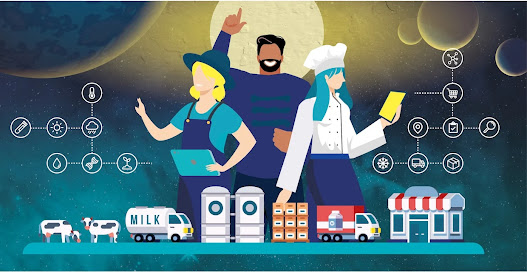Sustainable Food Systems in Hospitality: A Growing Priority
In the hospitality sector, sustainability is increasingly becoming a necessity rather than a choice. Food systems contribute to about one-third of global greenhouse gas emissions, with food waste accounting for 8–10% of these emissions. This makes sustainable practices essential not only for environmental stewardship but also for managing rising operational costs in restaurants and hotels.
Key Strategies for a Sustainable Food System in Hospitality:
- Source Locally: Emphasizing local suppliers helps reduce carbon footprints and supports regional economies. For instance, companies like Marou Faiseurs de Chocolat use locally sourced cocoa, showcasing a business model that integrates sustainability with profitability.
- Minimize Food Waste: Tools like food waste audits and education programs for staff and customers can significantly reduce waste, which is a major pollutant in the hospitality industry.
- Educate Stakeholders: By training suppliers, workforce, and customers on sustainability, the industry can collectively transition toward responsible practices.
- Adopt Green Technologies: Investments in energy-efficient appliances and sustainable packaging are pivotal for reducing environmental impact.
The hospitality industry's movement towards sustainability was spotlighted in a recent conference organized by the Association of Southeast Asian Social Enterprises for Training in Hospitality & Catering (ASSET-H&C). The event featured discussions on practical solutions, successful case studies, and expert-led workshops aimed at creating actionable outcomes for attendees. Stakeholders from various sectors—including hotels, restaurants, and NGOs—participated to exchange ideas and commit to transforming the food system into a more sustainable cycle.
Why it Matters for Hospitality Businesses:
- Sustainability resonates with environmentally conscious travelers and diners, enhancing brand value and customer loyalty.
- Reducing waste and sourcing sustainably often leads to cost savings in the long term.
- Sustainable practices align with global initiatives like the UN’s Sustainable Development Goals (SDGs), fostering international recognition.
With growing awareness and initiatives, the hospitality industry can play a leading role in promoting sustainable food systems while delivering quality services to its customers.
For more insights into this movement and specific case studies, explore resources from organizations like ASSET-H&C and the Food and Agriculture Organization
Visit Our Website : topteachers.net
Nomination Link : https://topteachers.net/award-nomination/?ecategory=Awards&rcategory=Awardee
contact us : contact@topteachers.net
#sciencefather #teachers #researchers #Technology #professorsr #lecture #scientists #researchscholar #researchscientist




Comments
Post a Comment